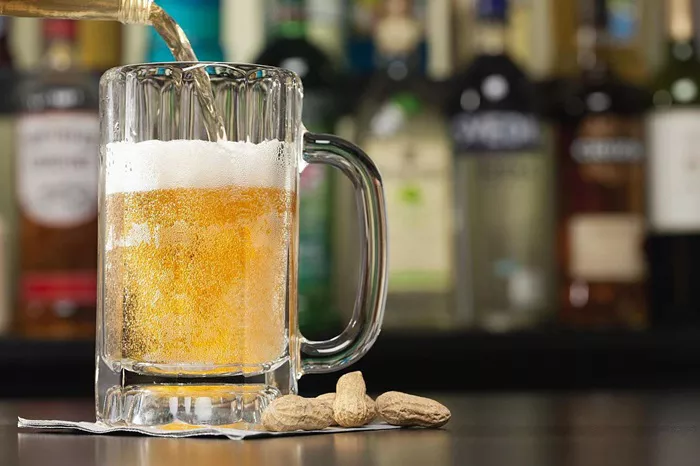BAKU, Azerbaijan (AP) — At the bustling pavilion section of the United Nations climate talks, where global organizations and businesses vie for attention with bold displays, an unexpected sight catches the eye: small aqua and purple cans of beer, resting on a counter at the Singapore exhibit. Upon closer inspection, those who take a can are in for a surprise—the beer is made with treated wastewater.
The beer, branded NEWBrew, is being offered for free to conference attendees, with many expressing surprise upon learning of its unique ingredient. Ignace Urchil Lokouako Mbouamboua, an international relations student from Congo, was one of those intrigued by the beverage. “I didn’t know. I was really surprised,” he said after taking a sip. “I can even suggest that they make more and more of this kind of beer,” he added, sharing that he had returned to the booth for a can on each of the past three days.
NEWBrew is brewed using NEWater, a high-quality treated wastewater produced in Singapore as part of a national effort to conserve water. The country, one of the most water-scarce in the world, has long been a pioneer in water management and recycling. With a population of 6 million and no natural freshwater sources, Singapore relies on a mix of water imports, desalination, and recycling to meet its needs. The country’s water demand is expected to double by 2065, which has led authorities to focus on expanding all sources of water.
While the concept of drinking treated wastewater may seem unusual to many conference-goers, for Singaporeans, it is part of the fabric of national water management. As far back as 2002, Singapore’s then-Prime Minister Goh Chok Tong famously drank a bottle of NEWater after a tennis match in an effort to normalize the practice. More recently, NEWBrew has been introduced to further drive acceptance of recycled water in the public consciousness.
The beer, which debuted in 2018 as a concept during Singapore’s International Water Week, is brewed by the local Brewerkz Group. It was first commercially produced in 2022, with further batches produced in 2023 and 2024. According to Ong Tze-Ch’in, chief executive of Singapore’s Public Utilities Board (PUB), the initiative is part of an ongoing effort to encourage acceptance of recycled water. “It’s part of the acceptance of the use of recycled water, which in general is a difficult topic,” said Ong. “We did many things to drive it.”
The 2024 version of NEWBrew is a modern pilsner, developed in collaboration with the brewery. “Beer is always very subjective,” Ong admitted with a laugh when asked about his thoughts on the taste.
The beer has also caught the attention of visitors like Peter Rummel, director of infrastructure policy advancement at Bentley Systems, who tasted the beer after attending a panel on water management at the Singapore pavilion. Rummel, a Munich native, known for its beer culture, shared his thoughts with nearby onlookers. “It’s fresh, light, cool. It has a nice flavor,” he said.
Wee-Tuck Tan, managing director of The Brewerkz Group, said the brewery produces around 5,000 liters of NEWBrew per batch, equivalent to roughly 15,000 cans. Despite the unconventional ingredient, he emphasized that the brewing process is no different from other beers. In Singapore’s retail markets, a can of NEWBrew costs approximately 7 Singapore dollars (about $5 USD).
Tan noted that the beer has helped shift public perception of NEWater. “People think it tastes funny,” he said. “When put into a beer, it changes the mindset. Most people can’t tell the difference.”
As water scarcity becomes an increasingly pressing global issue, the use of treated wastewater is gaining acceptance. Saroj Kumar Jha, director of the World Bank Group’s Global Water Department, who participated in the water management panel, said that leaders in more than 50 countries have told him not to use the term “wastewater,” preferring “used water” instead.
After the panel, Jha joined fellow panelists in raising a can of NEWBrew in a toast. “It’s really good,” he remarked. “It’s the fourth time I’ve had it.”
As climate change accelerates and global water challenges grow, innovations like NEWBrew offer a glimpse of the future of sustainable water management.
You might be interested


